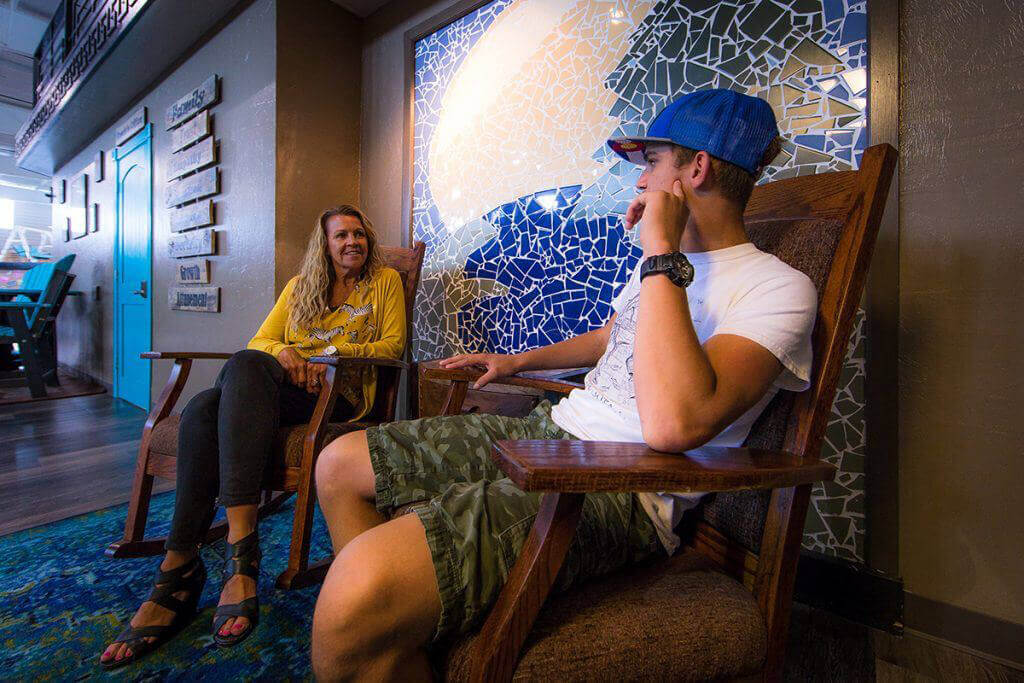Advantage of Residential Care
The advantage of residential care is almost total “variable” control. Calo controls all variables in a given child’s life while they are in treatment. All waking and even sleeping hours are controlled and largely predictable. Music, friends, dress, and other privileges are developmentally managed and introduced when the student has been able to engage in the regulating relationship with safe caregivers.
We create an atmosphere, what we call the “milieu,” that is largely devoid of negative influence. Simply put, we:
- eliminate distractions
- create relationships that are profoundly meaningful
These relationships can, absent so many of the typical teenage distractions, create a desire for internal change.
Virtually all residential treatment centers provide formal therapy. The differentiating factors are often found within the uniqueness of the therapeutic environments. Our milieu is what distinguishes us from all other approaches.
Using a guiding model of treatment focused on:
- experiences of secure attachment
- developmental attunement
- canines (transferable attachment)
- recreation therapy
- child-focused academics
- the student community
- amazing staff

